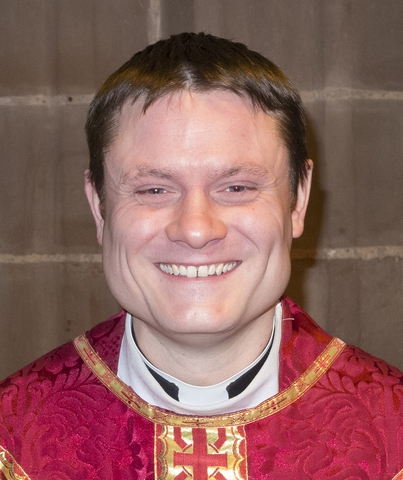
November News From The Clergy
20 Oct 2021 • From the Clergy
November is traditionally a time for remembering: All Saints and All Souls, along with Remembrance Sunday, are key parts of the opening half of the month in the church calendar. The last of these in particular is one which has a resonance for many people who still have memories of the Second World War or more recent conflicts, or who have themselves been in the forces.
We have a permanent reminder of the cost of war and the importance of remembering at churches in our Team, with the war memorials outside and brass plaques to the war dead inside. If our focus is especially on these in November, they serve their purpose of invoking remembrance throughout the year.
Across the world, there are memorials to the dead of human conflict, violence and brutality. Some of these sites of memory are notably poignant or traumatic.
It is hard to stand amidst the Nazi death camps of Auschwitz-Birkenau or Majdanek in Poland without being overwhelmed by the enormity of the horrors which happened in those places. The Killing Fields of Cambodia, with their displays of the human skulls from the victims of the Khmer Rouge tyranny, are difficult places to visit but essential to understanding the depths to which human beings can sink.
There are any number of examples which could be drawn at this point. Sites of memory are complex, emotional places, for they connect us with the victims of humanity at its very worst. They remind us that remembering is a duty, that memory can be painful and shameless.
Yet there is another side to this, for remembrance is not all about despair or looking backwards. The act of remembering is also one of defiance, an assertion that the tyrants of our world and the terrors of war cannot erase the memory, the sacrifice or the courage of its victims. Genocide and slaughter aim to dehumanise these victims and erase their memory from the earth, yet remembering them by name and keeping alive their memory defeats this intended purpose.
Remembering involves looking forwards as well as backwards, for intricately connected with remembrance is hope. As we cast our gaze backwards to recall those who suffered, so too we assert their value and look forwards in hope to a world where this does not have to be so, where the violence of war and oppression has given way to a world of peace and justice where the rights and dignity of all are respected.
Hope, after all, is at the heart of Christian life, one of the three central tenets alongside faith and love.
Too often, hope is trivialised, turned into blind optimism, vague longing or selfish desire. This is not Christian hope. Christian hope is that which we encounter in the process of remembrance, a hope which looks upon the very worst parts of the human story and recognises that these will one day be transformed, for ultimately God will bring about his kingdom of mercy, peace, justice and love. It is not a hope that things will all be easy in the near (or even more distant future), or some anodyne hope that everything will be OK in the end.
It is rather a hope that trusts in God’s ability to redeem all things, in the knowledge that God’s ultimate purpose is good and that beyond the transitory agonies of this world lies something eternal and incomprehensible to the corrupt, brutal ways of power. It is a hope that no death, however premature or tragic, is in vain, for ultimately all are offered a share in that future kingdom.
As we remember this November, let us also assert our hope that all those whom we remember are not forgotten in the eyes of God, and our hope that through our memory we may undertake God’s work of transforming the world in which they suffered and so many others continue to suffer.
Phil